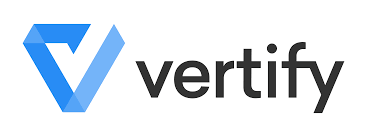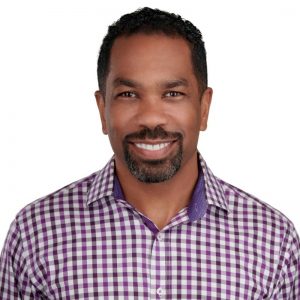My partner Wayne Lopez, founder of data automation and analytics provider Vertify, and I were recently faced with a tough question regarding one of our portfolio companies: Is it time to bring in a seasoned CEO to take the company to the next level?
This got me thinking about a co-founder‘s journey.
 While he may not be the CEO to take the company to the next level, as a co-founder, Wayne actually beat the odds. He’s done better than 90 percent of the founders who don’t make it this far. He successfully launched the company, created two different versions of the product to get to product-market fit, raised Venture capital, and now runs a multi-million dollar business.
While he may not be the CEO to take the company to the next level, as a co-founder, Wayne actually beat the odds. He’s done better than 90 percent of the founders who don’t make it this far. He successfully launched the company, created two different versions of the product to get to product-market fit, raised Venture capital, and now runs a multi-million dollar business.
It’s just that to realize the billion-dollar outcome he envisions, the company needs an increased level of experienced leadership that he can’t provide at this point in his professional journey…and that’s OK. But for the purposes of this installment of StartupHeat, let’s discuss what it takes for a first-time founder to successfully navigate the pitfalls of a startup.
What is the archetype of a successful entrepreneur?
 Is it tangible, startup experience or the intangible mindset that’s the key, or is it both? In short, how important is it for you to have “seen the movie?” To answer these questions and more, I interviewed Wayne, now a successful, second-time founder, to get his confessions from his first time around:
Is it tangible, startup experience or the intangible mindset that’s the key, or is it both? In short, how important is it for you to have “seen the movie?” To answer these questions and more, I interviewed Wayne, now a successful, second-time founder, to get his confessions from his first time around:
- When you know nothing about fundraising, but everyone tells you, you need to fundraise, how do you balance that with getting traction and not over-indexing on fundraising?
I can give you the perspective of my first fundraising effort versus the 2nd and what you learn from it. In the first go around, we made the mistake of fundraising right out of the gate. Looking back on it, it was a waste of time because we really had no traction.
I think people fall in love with this thought that, “If you’re a startup, you can have this back-of-the-napkin idea, and somebody will fund that. And that happens – that’s the exception. It’s not the norm or the rule.
We tried to fundraise early on without a product, before we had product-market fit. And when I look back at how much time was spent, especially as a founder, I probably spent an inordinate amount of time – probably 30-40 percent of my time – trying to find investors for something that we just didn’t have the traction on or meet enough of the milestones to warrant investment, particularly in certain markets, like Houston, TX.
But for certain industries, fundraising [early] is important. And when you get to certain stages, it’s important. This is true especially to feed a high-growth company.
The biggest takeaway for me the second go around was, lets’ make sure we have product-market fit and we have traction. You can still talk to investors – it’s good to identify potential investors and start building relationships – but it’s a huge waste of time to try to actually fundraise without having some traction, an MVP, etc.
Unfortunately, people see things like Shark Tank and think, “If I just had an idea…” But it just doesn’t work that way unless you happen to have a relationship with some independently wealthy person who loves that idea.
[For me], doing it all over again, I would spend maybe 10 percent the time identifying investors and maybe communications, in terms of letting them know what we’re working on. I don’t mean trying to pitch them or working on pitch decks or trying to have formal meetings with them. I mean just getting on their radar and spending most of the time trying to get product-customer fit and traction so [potential investors] can measure what you’ve done. When the time is right, then you spend more time fundraising.
- Has data automation and analytics always been something you’ve been passionate about? How did you come to it?
I am pretty passionate about it and it just happens to be the area where I’ve had most of my experience, unlike my first entrepreneurial venture, which was in B2C, an area in which I had literally no experience. And I think that played a role in that company’s lack of success.
Consider that versus something I’ve been doing ever since I finished grad school 20 years ago when I helped Phillip Morris build their first CRM from the ground-up. When I worked for PWC and IBM, I was helping build business intelligence and CRM tools for companies. So, I’ve always been in this space.
Over time, you develop an understanding of the end user – sales and marketing teams. And at one time I actually was in sales. So, you develop this empathy for and understanding of them. You do develop this passion. And because you have this experience, it really helps when you say, “Let me build a product for them.” You marry all those things together and it just makes it that much easier.
- If you had to do it all over again, do you think you would have ended up in the same space? Does the space you’re in matter?
The space you’re in does matter. If you have 3-5 years experience understanding that certain customer base, again, it goes a long way to building empathy and understanding “a day in the life.” I try to encourage entrepreneurs to maybe think about the things you DO know, because it’s just that much easier, rather than discourage them and say, “If you don’t know anything about [the space], don’t do it.”
- Who have you turned to for advice along the way?
This is another area where, if you’re not careful, you can waste a lot of time and get a lot of feedback from people who are not relevant or maybe don’t have your best interests at heart.
My first go around, we solicited advice from everybody because I felt like, “I’ve never done this before.” And everybody’s trying to give you advice and input. And sometimes, it’s needed. But you also have to take a step back as an entrepreneur and realize maybe that person has had that experience, but there’s something different about what I’m doing.
So, you have to say, OK, that’s understandable. That’s a data point. But I’m actually going to try something different.
With Vertify, I’ve been more selective in who I take advice from – both me and my co-founder – and who we listen to. Because I think things like “stage” matters. Sometimes you’ll get people who had great experience at a later stage of a startup that’s not applicable to your stage. And that’s not relevant. Or you get people that don’t know your space and play themselves off as an expert. And, again, that’s not relevant for your space.
So, I’ve been very purposeful on asking: do they understand this space and do they understand the stage? Then I’ve looked for people that fit that – in my network, initially. And if we can’t find people like that in-network, then we go to our investors or others that we know to see if they know someone who fills this gap. Instead of an “advisor,” we’re more looking for someone who knows this specific thing, like product-market fit or growth stage. We’ve really honed in on the right people who can give us the right advice for our stage.
- What areas of expertise have you found to be the most valuable during your startup journey?
My co-founder was a marketer by trade and our product is built for the marketer – for the revenue team, which includes marketing. So that’s where his expertise has been valuable.
While my co-founder isn’t technical, I am. I’m not “engineer technical,” but technical enough and that helps when we’re having technical conversations with investors who are also technical. So that area of expertise really helps complement my co-founder. But we got to a point where we needed to bring in a CTO, so I knew more of what to look for in recruiting that role.
As for fundraising, while I wasn’t an expert in it, I had already gone through that process, while my co-founder had not. So, there were a lot of things I was able to coach him on, like “here are things we need to consider or not consider” as we moved through that fundraising journey.
I had been able to raise a small amount of money before but not the amount that we’ve raised at Vertify. And so we wanted to surround ourselves with that expertise from people who’ve gone through the process and been successful. We asked ourselves, “Who are other entrepreneurs who’ve raised $1-3 million?”
- What has been the biggest challenge for you in the fundraising process?
Vertify maybe doesn’t fit the typical mold of companies at our revenue stage. We have a product in-market (integration) that isn’t a high-growth product. Maybe 50-80 percent growth. But we knew it would be a means to an ends for our analytics product.
So the biggest challenge has been when we went to series A investors after raising a pre-seed round, and they were excited about the amount of revenue we had. They said, “You guys are in a perfect spot.” But when we talked to them about the overall vision and how this new product is really where we expect high growth, they wondered, “What are we investing in?” and said we weren’t quite ready for series A investing because we’re not at a scale level yet with the newer product.
So it’s been a real challenge identifying investors who really understand our story. And even though we’re at a revenue stage of a series A company, from an investing standpoint, we’re looking for seed or “seed plus.” The challenge is trying to tell the right story to the right investor.
For first-time founders, I’d advise them to not shy away from bootstrapping. We raised our pre-seed round in 2019. We survived 2020 and are thriving now. So we’re asking ourselves, “Do we need to raise capital?”
Everybody wants to read Tech Crunch and falls in love with headlines of companies that are raising $X million. And sometimes that’s needed if you’re in a competitive space. But I tell people to see if they can do it bootstrapping and not having to raise funding. But if you do got that route, really spend the time focusing on investors that understand your story.
The research that it takes to not waste your time with investors should not be overlooked.
- How has the pandemic affected your outlook for future growth or spurred innovations that might lead to new areas of growth in your business that you might not have considered before?
One thing we did a month after the pandemic when businesses started to shut down – travel and tourism – I addressed the company and said, “Look, we’re not going to fold the company. We need to instead look at where we should double down because some industries are actually going to benefit from this. So let’s start that work now.”
You can’t trivialize or minimize what the pandemic has done to people’s lives, but, from a strict company perspective, we’re also in the business of helping people have jobs and sustain their families. So we owed it to ourselves to say, let’s not focus on those industries.
We lost customers in the hotel industry and others like that. But we gained customers in biotech and medical devices we had no idea could become customers of ours. The pandemic forced us to look at where we could possibly find future growth. Taking a step back, we realized it wasn’t just because of the pandemic. We really saw some of these industries coming to us – healthcare, medical devices, biotech, etc. – and we saw a lot of growth in these industries and others beyond the pandemic.
Another thing it forced us to do was narrow our focus and not spread ourselves too thin. For instance, we noticed we were a better solution for B2B companies right now rather than B2C. Part of that was because of the pandemic, but part of it was the way we built the solution.
Just by looking at it internally, we knew 70 percent of our customer base was B2B, and we’d done things that seemed to align more with them. And now, from an innovation standpoint, some of the data models we built have been a result of that change in focus.
- How do you move fast when there are so many unknowns, especially in this post-COVID world?
First, there’s comfort in not having all of the answers. People focused on being perfectionists find it harder to succeed when trying to move fast. And COVID showed us that in just weeks or a month, things can be totally disrupted. So, you really have to have some comfort in the idea that 80 percent is “good enough.” And we abide by that. Sometimes, we say 70 percent is good enough – we don’t even have to sniff 100 percent. Coaching yourself on having that comfort helps you to be in a position to move fast.
Second, is iterating and experimenting with your solution. You could go to market with it and realize that’s not what the user wanted. So you have to iterate on small pieces and that will help you to get fast. Instead of building out this big thing where you think you have all of the answers, you experiment with little things, get feedback on it, get data, validate it, and then take that and say, “Did that work – yes or no?” If yes, then double down. If no, OK then, what’s the next thing?
Again, we saw with COVID within like a month, we lost some customers. So you have to be able to iterate quickly and experiment so that you can get results and data back to see if this is the right place to go. This goes back to how we looked at a couple of possible new industry targets.
We had one biotech customer come to us, and we experimented with an email campaign to some other biotech company prospects to see if we could have some success there before deciding to go full-bore into that industry. Because we had enough data from that experiment, we could apply it elsewhere, which helped us move faster.
- How has your solution evolved since the MVP stage? What kind of feedback did you receive from early customers to help you make needed adjustments?
The awesome thing is we’ve been able to use existing integration customers as a validation point. Instead of a company that doesn’t have any customers and just has a hypothesis before they go and build something and then has to go find customers to figure out if they maybe have the right solution,” we already had this pool of customers with this need. We’re able to utilize and leverage them, which has helped frame part of our go-to-market for the analytics piece.
We already had customers for our integration piece. We just had to talk to them about why analytics are important to them too, what features they needed, etc. Because you’re already collecting revenue with them, you’ve got runway. You don’t have to worry about raising capital to fund your hypothesis [for a new product]. So, we can use revenue from our existing product to fund this “research.”
- How have you been able to remove your biases so you don’t fall in love with your idea?
It’s really easy to have an idea and think “this is the feature or functionality [customers] want.” It’s human nature to fall in love with that idea.
As a product manager, my job is to remove those biases. It goes hand-in-hand with experimenting to get validation. Or you get the answer that, no, that’s not what they want, and then you’re able to iterate on it.
That’s the way to remove bias – by constantly looking at data. I look at how people use our solution, weekly if not daily. I look at data on user behavior – things they’re clicking on and how much time they’re spending on it. Those data points help you to say, “Is that feature useful?”
If you ignore the data, you could go and build something and be thinking “I know they really need this thing.” And the next thing you know, you’ve wasted two weeks building something that’s not used. And while that happens sometimes, the goal is to do that kind of thing as little as possible.
There are so many tools out there that capture data to show how your customers are using your product. Find out whether customers are using it and how. Looking at the data has to be part of your daily habit.
- What are the distractions you should be looking out for to avoid the noise that comes while building a company?
As I mentioned, fundraising can be a distraction early on. Scaling too early can be a distraction. There’s a lot of stuff written out there about scaling a startup and how if you haven’t reached certain milestones or checkpoints and are trying to do things too early, that can be a distraction. Avoid focusing on stuff that just doesn’t matter for where you are in the journey.
Things that are self-serving can be a distraction, such as conferences. You get in certain spaces and there are tons of conferences. And, typically, people at those conferences are with established companies. There’s a reason for that. It’s hard for the founder of a startup to get anything meaningful out of a conference. There’s a lot of noise, and you can waste a lot of time and money.
Now, we have attended some, but there’s been a specific purpose, like trying to meet a specific person at a company who runs the conference in order to help with a partnership. But I see a lot of people get bogged down attending too many conferences…and [the cost of] those things add up and are a huge distraction for early-stage startups, in particular.
- As a founder, how have you tried to differentiate your company in a crowded marketplace?
That’s something we’re still trying to figure out every day. While you don’t want to get too distracted following your competition, you do need to have a good understanding of what’s in-market, in terms of alternatives to your solution. That way, when putting a message out there, you won’t just sound like somebody else.
You also should look for channels that your competition hasn’t leveraged or exploited yet. You might have something that sounds similar to a competitor, but if you find a channel that hasn’t been tapped yet, that’s a way to differentiate.
Your product needs to be 10x better, and I think spending time on what’s 10x better about your product and focusing on the language that’s coming from customers is important. We’re constantly listening to audio from our customers from surveys and feedback sessions to see what’s important to them and we use that language to differentiate our message. Because, obviously, those are the pain points, and nobody else is talking with them about that.
- Do you have any other parting “words to live by” for first-time founders?
Focus. It’s easy for entrepreneurs to get “shiny object syndrome” when you see so many opportunities. It’s how you’re built: to look for new opportunities. It’s really hard for us to say, “Wait, wait, wait – let me evaluate that thing, does it help me in my current path?” If not, maybe you ‘parking lot’ it.”
So, focus is an area that’s very important, particularly for early-stage founders and entrepreneurs so they can distinguish between things that are real opportunities and those that could just be distractions.
Thanks to Wayne for sharing those insights from a founder/co-founder and seasoned entrepreneur, who has “seen the movie” – twice! Next time on StartupHeat, we’ll talk about … Until then, stay curious, stay masked, focus on the signal, and make mindful decisions on your journey to success!



